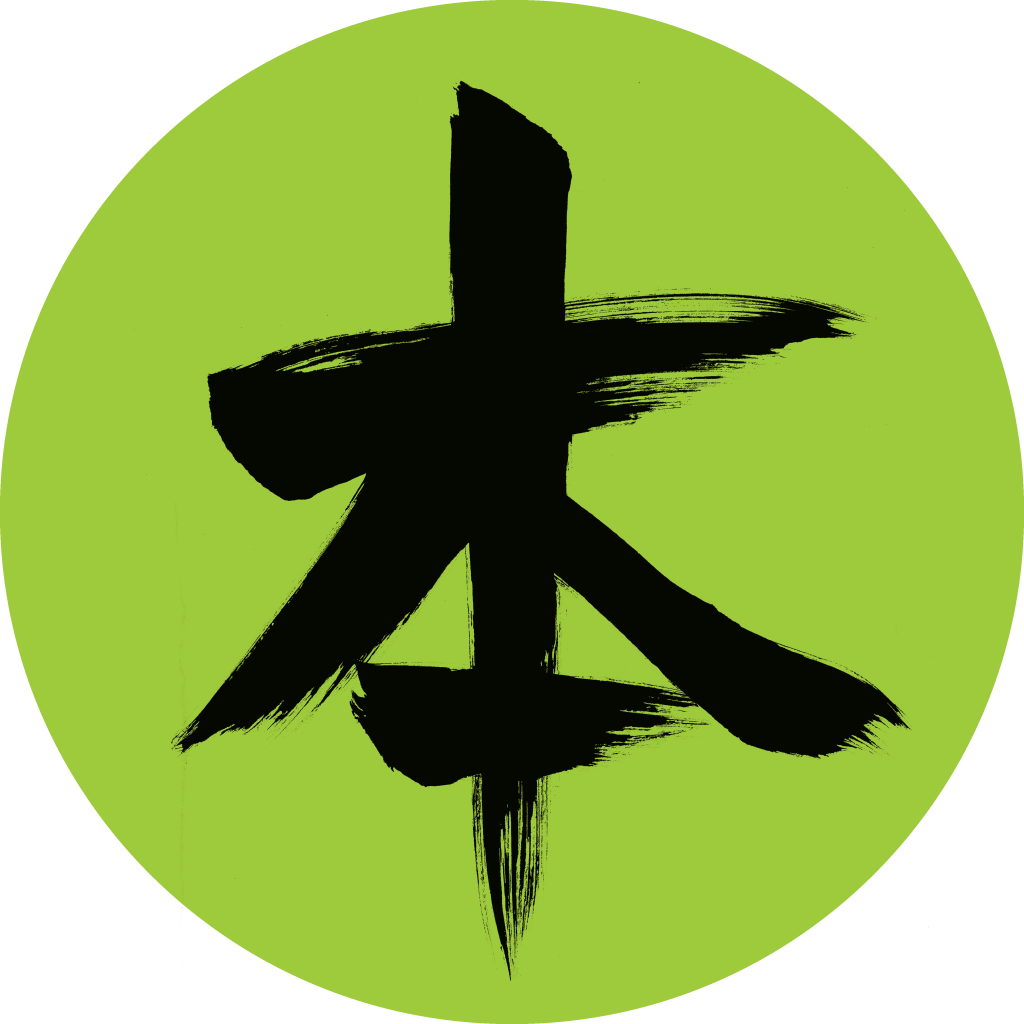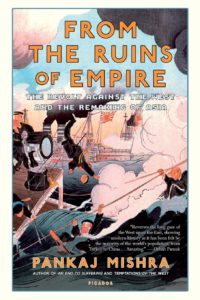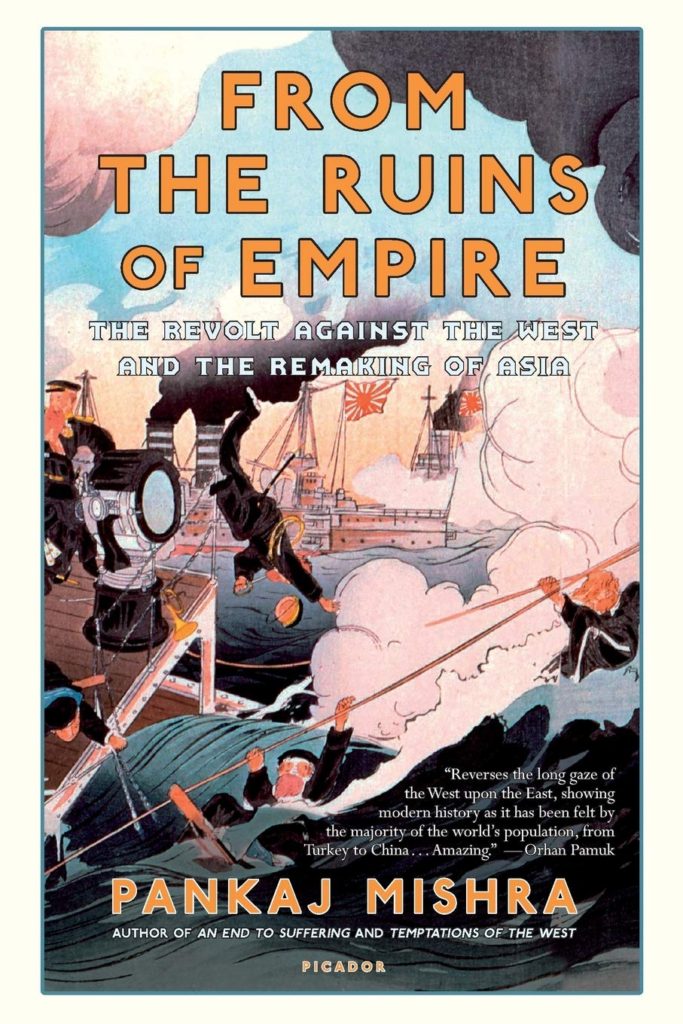As part of our Books on Asia Top Books of 2020 series, we’re introducing our top picks one book at a time. For the whole list of 12 books, see Our Reviewers Pick their Top Books for 2020.
Mini Review By Chad Kohalyk from Goodreads
This part of the nineteenth century was a cosmopolitan moment for Asia. The subjects of Mishra’s work were inveterate travellers, moving throughout the Islamic, Indian and East Asian worlds, contrasting Western political intellectuals who philosophized about Asia almost exclusively from the comfort of their overstuffed chairs. From the Ruins of Empire follows the above Asian intellectuals on their travels where they meet and influence a new generation of activists like Sun Yat Sen. The author also traces how their thinking on Pan-Asianism transforms—from initially advocating that Asian nations modernize by mimicking the West and adopting its scientific and industrial advancements—to expressing their horror at the First World War which turned them away from so-called “Western progress.” This frames the ultimate dilemma facing Asia in the book: to be more like the West (which is what Tsushima teaches) or to progress with Eastern alternatives which are more suited to the multi-ethnic, multi-religious reality of Asia, a form of modernization sans Westernization.
Despite the successful anti-colonial movements in the post-World War II era, the story Mishra tells is ultimately a tragic one. Asian nations may have won out over political colonialism, but they lost against intellectual colonialism. India and China are very adeptly wielding the power of centralized nation-states, effectively replacing the role previously filled by Western imperial overseers. The “South to South” dialogues of the intellectual network described by Mishra did go on to inspire later revolutionaries. Mishra makes these connections, showing for example how the ideas of al-Afghānī have been twisted into the narrative of political Islam.
This book originally came out in 2012 amidst the Arab Spring and Colour Revolutions. That time also saw a surge of revisionist histories of empire by writers like Niall Ferguson which helped to justify the wars in Iraq and Afghanistan. From the Ruins of Empire demonstrates how people can be motivated by humiliation, and in it you can see the seeds of Mishra’s later book Age of Anger (2017) centering on the politics of ressentiment, so prevalent in our era.
Reading From the Ruins in Empire in 2020 I was amazed at some of the nearly 200-year-old critiques of the West. You could copy-and-paste them directly into today’s media. Mishra has done a brilliant job excavating these perspectives and tying them together with his usual smooth writing skill. The author offers no specific solutions, but reading about such intellectual journeys outside the standard one of “Western progress” is fascinating.
This was probably the most thought-provoking book I read this year. With the waning of liberalism and democracy described by Edward Luce in The Retreat of Western Liberalism, it feels like we are at another turning point. Discussions of what happens next are occurring worldwide, but what does the fall of liberal internationalism mean for Asia? What are the indigenous intellectual legacies that might fill the void? From the Ruins of Empire shows that there can be imagination outside the box of Western political thought, alternatives rooted in history, that are possibly more viable than completely new or alien systems.
For the complete list of top books we read in 2020, see Our Reviewers Pick their Top Books for 2020.


